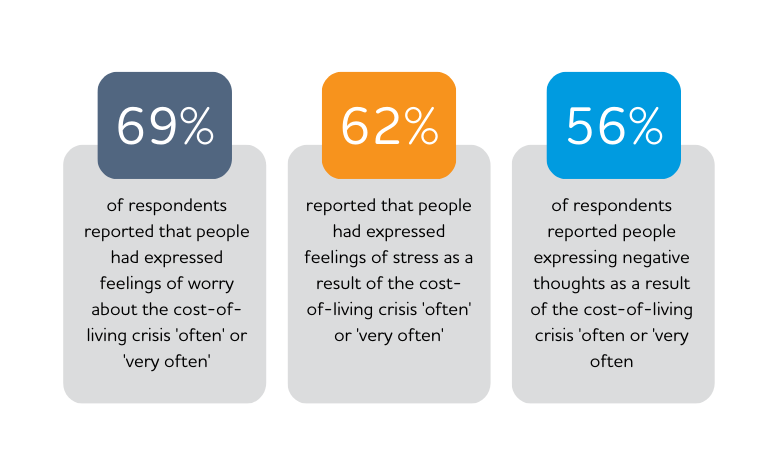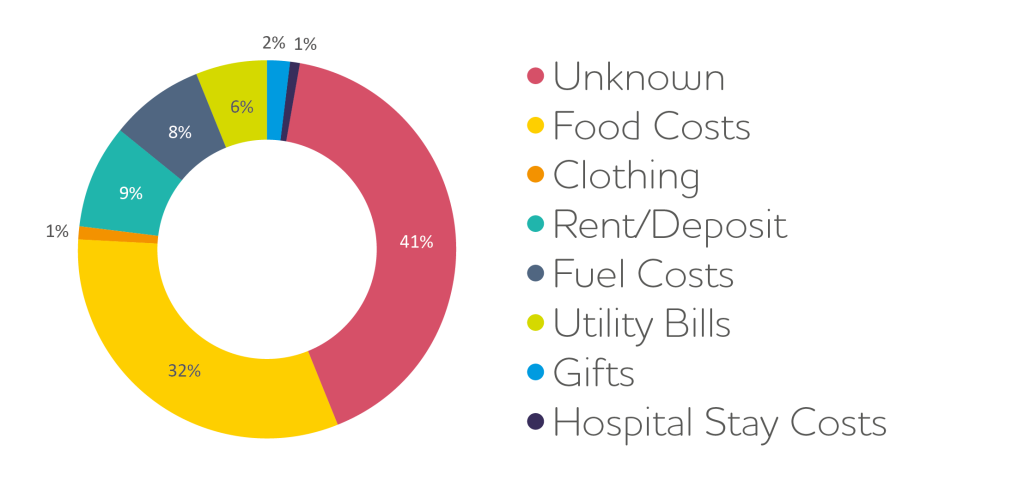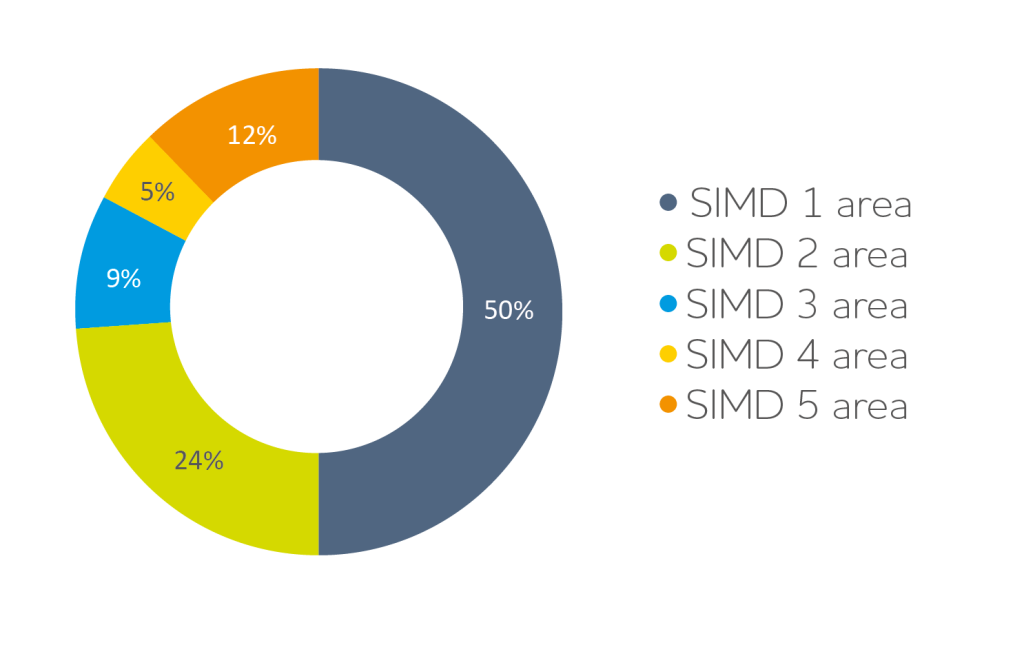Between July and September 2022, we looked into how the increased cost of living affects the people we work with.
We also looked at how it affects our service. We did this by asking our Support Coordination team to complete a survey, and by looking at how people use hardship payments. These payments are unexpected costs to do with people’s basic needs. We also looked at the places people live in Scotland to see if the survivors we work with also live in areas that may be more affected by the cost of living crisis.
What did we find?
The cost of living is negatively affecting survivors’ mental health
Support Coordinators have noticed that people are feeling more stressed, worried and experience more negative thoughts as a result of the cost of living crisis. People are particularly concerned about their finances and their housing.
94% of survey respondents said they have heard survivors expressing concern about their finances ‘often’ or ‘very often’.
62% of respondents have heard concerns about people’s housing ‘often’ or ‘very often’.

The cost of living impacts the work of Future Pathways
87.5% of respondents ‘agreed’ or ‘strongly agreed’ that the cost of living crisis is affecting the kind of support that Future Pathways provides.
The amount of money we spend on hardship payments has not increased. However, there has been a rise in the number of people accessing hardship payments over the last 9 months. We are having more discussions with people about budgeting and linking people to services like food banks and money management support.
Support Coordinators notice that survivors feel less able to focus on personal outcomes or longer term needs because they are under immediate financial pressure.
75% of respondents ‘agreed’ or ‘strongly agreed’ that the cost of living crisis is affecting the outcomes that we support people with. The increase in cost of materials also affects the cost of the services that Future Pathways commissions.

The people we work with live are more likely to live in deprived areas
74% of people registered with Future Pathways who live in Scotland, live in the most deprived areas of Scotland. This indicates that the cost of living crisis may disproportionately affect the people we work with.
The crisis presents significant barriers to many survivors, many of whom are already affected by existing inequalities.
We recognise that Future Pathways has a part to play in supporting people. We are not a crisis service, but we are adjusting our support in response to the current circumstances. We do this by developing partnerships with organisations such as Home Energy Scotland, and many others to help people access the information, advice, and support that they need.
We would also note that, even in times of financial crisis, it is still important that people are supported in achieving their individual goals.

Support Coordinator Reflection:
One of our support coordinators describes the impact of the cost of living
”Many survivors I work with share their anxiety about how the cost-of-living will affect them this winter as the cold weather impacts people’s energy bills. People share that because their budget is absorbed by utility bills, there is little or nothing left over for “extras.” More people are sharing that they have started using food banks to eat.
It feels as though the Support Coordinator role is shifting in response to this crisis. For example, I have noticed that I am making more referrals to local money advice services, and I often research local food banks for people to access. I also find that people’s financial situation comes up earlier in the conversation and sometimes feeds into the conversations we have about outcomes.
Some people are finding it difficult to reflect on their medium to longer term goals because they are in “survival mode” and feeling worried about meeting their basic needs. This is particularly impacting on people who are already financially struggling or who manage chronic stress in their lives.
As a Support Coordinator, I think this situation may be particularly affecting people who we are not able to reach as easily, such as those who are homeless. It is also possible that people may stay in unsafe environments because they may not feel financially able to move.”



